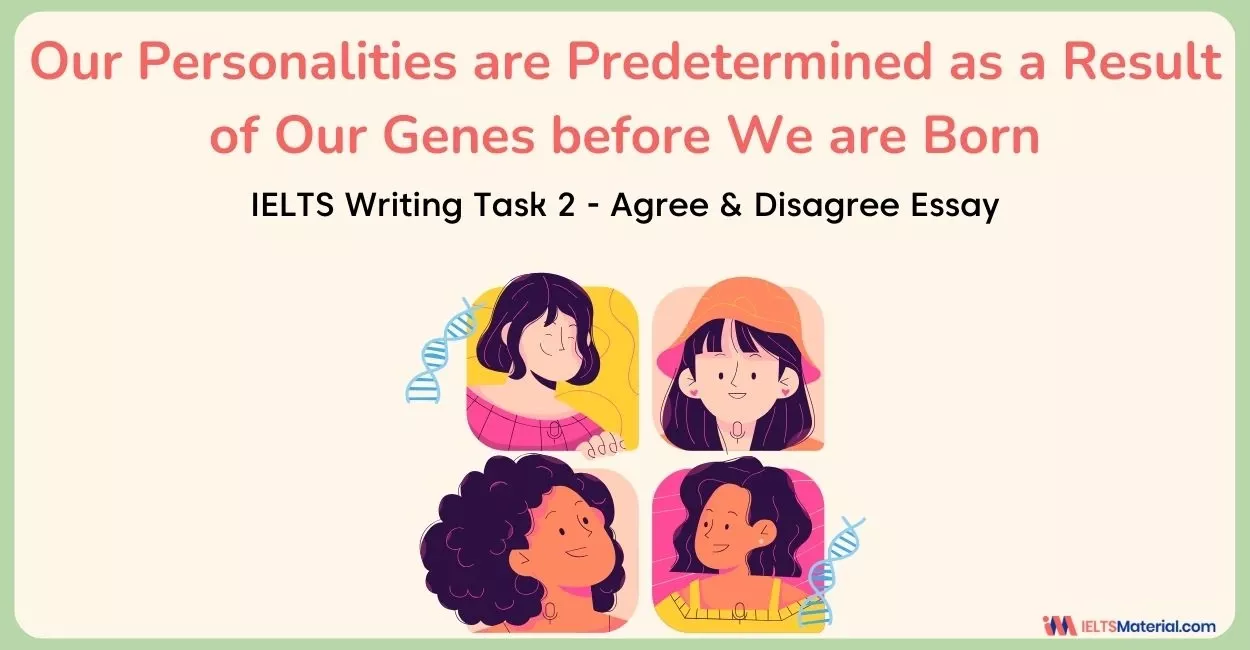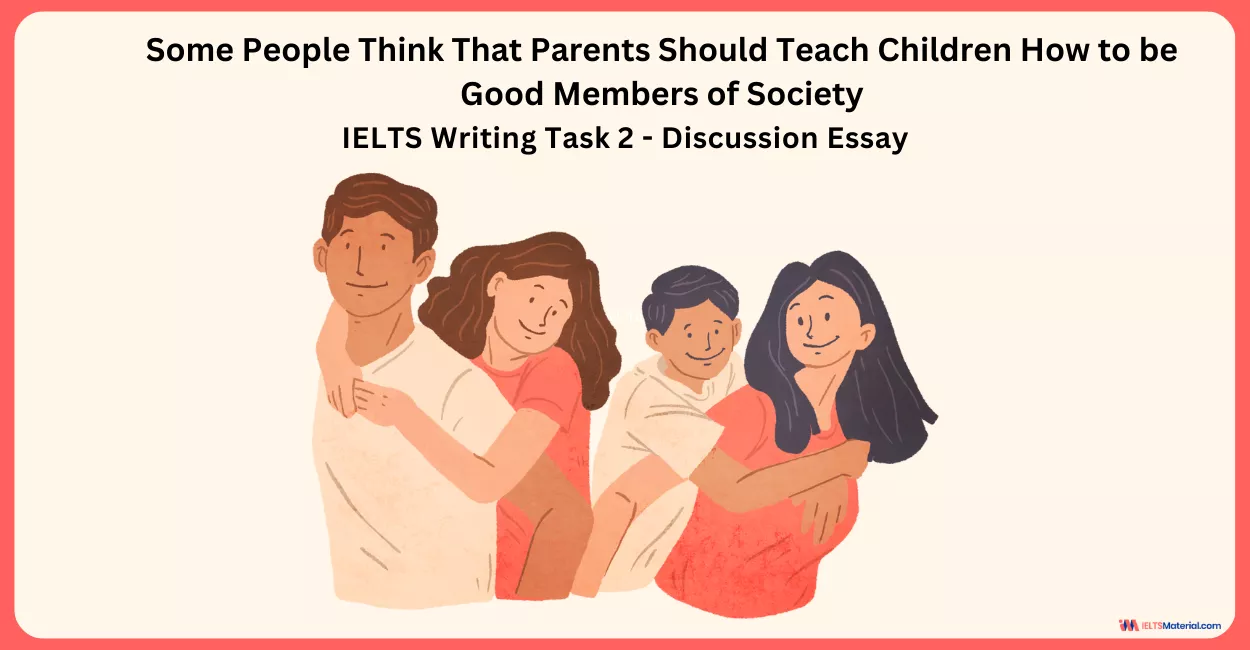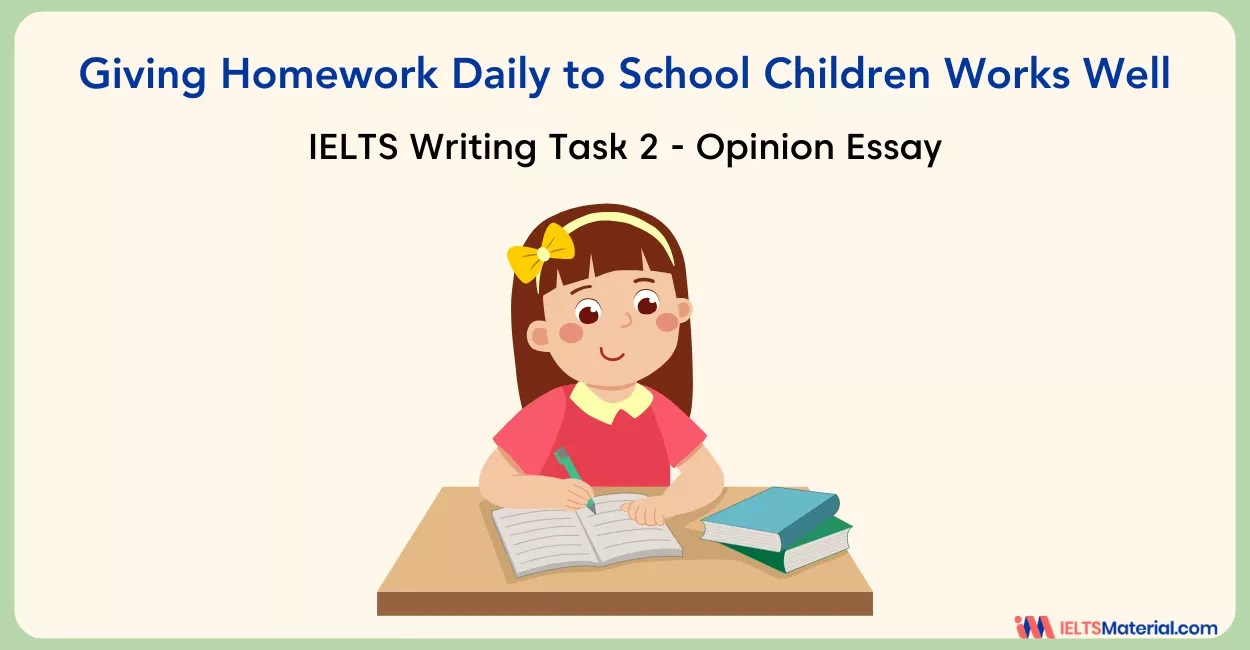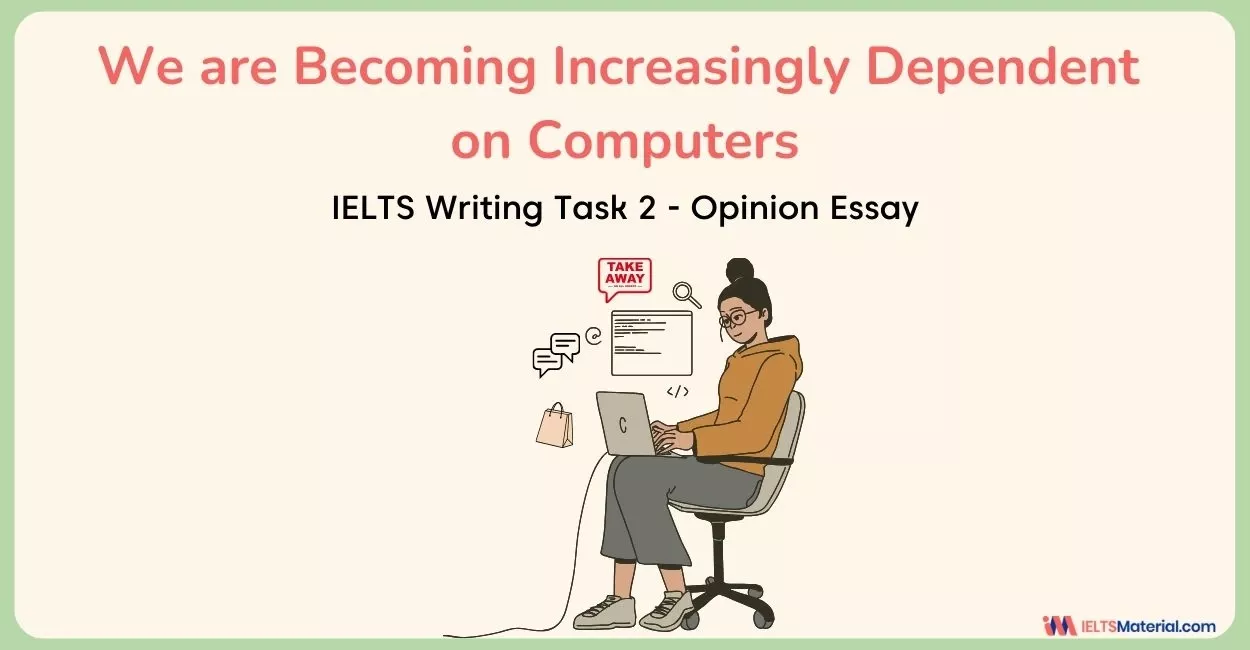Giving Homework Daily to School Children Works Well - IELTS Writing Task 2
Learn about IELTS opinion essays with the topic, 'Giving Homework Daily to School Children Works Well', using 3 sample essays, an outline, and key vocabulary. Discover how to structure your response & present a well-rounded answer for Band 7+.
Table of Contents

Try AI Essay Checker for Instant Band Score
Homework has long been a controversial subject in education. Some parents and educators believe that daily homework is an essential tool for reinforcing classroom learning, while others argue it creates unnecessary pressure and reduces children’s free time. The IELTS opinion essay question ‘Giving homework daily to school children works well’ asks candidates to evaluate whether assigning homework every day is truly effective.
Here, we examine sample answers for the IELTS agree-disagree essay on the topic ‘Giving Homework Daily to School Children Works Well’, along with an outline and relevant IELTS vocabulary, which is crucial for achieving a high band score.
Question for Giving Homework Daily to School Children Works Well
You should spend about 40 minutes on this task.
Homework is a part of school life. Many people feel that giving homework daily to school children works well for them, while some feel it is an unnecessary burden on them. What do you think about it?
Give reasons for your answer and support your arguments with examples and relevant evidence.
You should write at least 250 words.
Outline for IELTS Opinion Essay
Following is an outline that will help you understand how to write opinion essays to achieve an IELTS band score of 7 or higher.
|
Introduction
Body paragraph 1
Body paragraph 2
Conclusion
|
Sample Answers for Giving Homework Daily to School Children Works Well IELTS Writing Task 2
To achieve your desired writing band score, ensure that you carefully examine the three IELTS Band 9 essay samples on the topic, Giving Homework Daily to School Children Works Well, which are given below.
Band 7 Sample Answer for IELTS Writing Task 2 Question: Giving Homework Daily to School Children Works Well
Introduction
Homework is a crucial part of school, with different views on its benefits and drawbacks. Some say daily homework is good, while others think it’s too much for students. In this essay, I’ll discuss both sides. Personally, I believe it’s vital to find a balance—recognizing the good aspects of homework without harming students’ well-being.
Body Paragraph 1
One of the primary arguments supporting daily homework is its role in reinforcing classroom learning. Homework serves as a valuable tool to enable students to practice and apply the concepts taught in class. Supporters say doing homework not only improves understanding but also teaches responsibility and discipline. For instance, when students work on math problems or essays at home, they learn to solve problems independently and motivate themselves.
Body Paragraph 2
Critics say too much homework can cause stress and harm students’ well-being. The pressure to finish assignments can lead to burnout, making learning less effective. Additionally, not all students have the same resources and support at home, creating inequalities in their ability to complete homework. Therefore, it’s important to make sure homework is reasonable in terms of quantity and complexity, so it doesn’t unnecessarily strain students.
Conclusion
In conclusion, the homework debate highlights the importance of finding a balance. While homework can reinforce learning and build essential skills, it shouldn’t overwhelm students. Hence, achieving balance will ensure a positive educational experience, where homework benefits are gained without compromising student well-being. Overall, I believe that homework should serve a purpose, encouraging a healthy balance between work and life that fosters success beyond the classroom. (262 words)
Band 7 Vocabulary
Crucial:
- Meaning: Extremely important or necessary.
- Example: Time management is crucial for success in any project.
Drawbacks:
- Meaning: Disadvantages or negative aspects.
- Example: The new policy has benefits but also has some drawbacks that need to be considered.
Vital:
- Meaning: Essential; of great importance.
- Example: Communication is vital in building strong relationships.
Reinforcing:
- Meaning: Strengthening or supporting.
- Example: Positive feedback from colleagues can be reinforcing for one’s self-esteem.
Discipline:
- Meaning: Self-control and orderly behavior.
- Example: Athletes need discipline to maintain a rigorous training schedule.
Burnout:
- Meaning: Physical or mental collapse caused by overwork or stress.
- Example: The demanding job led to burnout, and the employee needed a break.
Inequalities:
- Meaning: Differences or disparities.
- Example: Gender inequalities persist in certain workplaces despite efforts for equality.
Reasonable:
- Meaning: Fair and sensible; not excessive.
- Example: It’s important to have a reasonable budget to manage expenses effectively.
Compromising:
- Meaning: Damaging or jeopardizing.
- Example: Ignoring safety guidelines is compromising the well-being of the workers.
Fosters:
- Meaning: Promotes or encourages the development of.
- Example: A supportive environment fosters creativity among team members.
Don’t wait to solve your IELTS queries?
Book IELTS online classes & discuss with the IELTS experts NOW!
Band 8 Sample Answer for IELTS Writing Task 2 Question: Giving Homework Daily to School Children Works Well
Introduction:
Homework, a constant companion from childhood, plays a vital role in a student’s growth. While some emphasize its positive impact on academic development, others express worries about potential drawbacks. This essay delves into both viewpoints, ultimately supporting the idea of a well-balanced and coordinated approach to homework.
Body Paragraph 1:
On the one hand, it is claimed that homework reinforces concepts learned in school and provides opportunities for independent practice. By applying knowledge at home, students gain a deeper understanding of subjects. Homework also keeps parents informed about children’s learning and helps teachers evaluate progress. Moreover, it is argued that homework teaches crucial life skills like time management, self-motivation and responsibility. When students diligently complete assignments, they learn to manage their workload, meet deadlines and take ownership of learning.
Body Paragraph 2:
However, some people believe that excessive homework can negatively impact children’s wellbeing. Too much homework leaves little free time for play, family time or extracurricular activities important for development. It can also induce unhealthy stress and anxiety. While homework certainly reinforces learning, I believe balance is imperative. Moderate, well-designed daily homework can enhance learning without overwhelming students. Educators must tailor homework policies to benefit students holistically, not just academically. With balance, homework’s advantages can be harnessed without sacrificing personal growth.
Conclusion:
In my opinion, homework, when carefully planned and managed, allows students to further their knowledge independently while developing important life skills. However, excessive amounts of homework undermine students’ wellbeing. Hence, balance is key so homework enriches learning without overwhelming children. (254 words)
Band 8 Vocabulary
Reinforces:
- Meaning: Strengthens or supports.
- Example: Regular exercise reinforces physical health.
Deeper:
- Meaning: Extending far down or inwards.
- Example: Engaging in discussions with peers provides a deeper understanding of topics.
Evaluate:
- Meaning: Assess or judge the quality or significance.
- Example: Employers evaluate job applicants based on their skills and qualifications.
Crucial:
- Meaning: Extremely important or necessary.
- Example: Communication is crucial for building strong relationships.
Diligently (adverb):
- Meaning: Carefully and thoroughly.
- Example: Employees who work diligently often excel in their roles.
Excessive:
- Meaning: More than is necessary or normal.
- Example: Consuming excessive sugar can negatively impact health.
Holistic:
- Meaning: Considering a person or thing as a whole.
- Example: Holistic approaches to healthcare consider physical and mental well-being.
Imperative:
- Meaning: Crucial; of vital importance.
- Example: Time management is imperative for meeting deadlines.
Harnessed:
- Meaning: Utilized or controlled.
- Example: Renewable energy sources can be harnessed to power homes.
Undermine:
- Meaning: Weaken or compromise.
- Example: Lack of trust can undermine the effectiveness of a team.
Join a FREE online webinar to learn how to deal with IELTS essays for success!
Band 9 Sample Answer for IELTS Writing Task 2 Question: Giving Homework Daily to School Children Works Well
Unlock Explanations
Introduction
Homework is a key part of a student’s education, with differing views on its value. Some students see it as helpful, promoting good study habits, while others think it’s not very useful. In this essay, I’ll support the positive aspects of homework, recognizing its drawbacks but highlighting its varied impact on students and society.
Body Paragraph 1
One primary argument in favor of homework is its role in cultivating regular study habits and aiding in knowledge retention. Daily assignments encourage students to revisit and apply class lessons, contributing to a deeper understanding of the material. Moreover, completing homework routinely correlates with improved exam performance, showcasing its positive impact on academic outcomes. For instance, consistent engagement with assignments facilitates an easier recall of information, reducing anxiety during exams.
Body Paragraph 2
However, some argue that homework can negatively impact children, limiting their free time and possibly creating a negative attitude toward learning. There’s also concern that students may copy peers instead of truly understanding the material, which could hinder real comprehension. Despite these worries, the benefits of homework are seen as more significant. Apart from academic improvements, homework provides a positive way for students to use their free time and teaches them responsibility.
Conclusion
In conclusion, I believe that despite concerns about homework, its benefits are significant for individuals and society. It improves academic performance and teaches essential life skills, fostering overall development and future success. While acknowledging the drawbacks of too much homework, a balanced approach ensures its positive impact. Homework becomes a valuable tool when used thoughtfully, enhancing the educational experience. (263 words)
Band 9 Vocabulary
Cultivating:
- Meaning: Promoting the growth or development of something.
- Example: Reading regularly helps in cultivating a love for literature.
Retention:
- Meaning: The act of remembering or retaining information.
- Example: Regular revision aids in the retention of knowledge.
Correlates:
- Meaning: To have a mutual relationship or connection.
- Example: Exercise often correlates with improved physical health.
Showcasing:
- Meaning: Displaying or presenting something prominently.
- Example: The exhibition is showcasing various works of art.
Engagement:
- Meaning: Active participation or involvement.
- Example: The students’ engagement in class discussions was evident.
Recall:
- Meaning: To remember or bring back to mind.
- Example: Mnemonic devices can help in the recall of information.
Hinder:
- Meaning: To create difficulties or obstacles.
- Example: Lack of preparation can hinder success in exams.
Significant:
- Meaning: Important, noteworthy, or having meaning.
- Example: The research findings were significant for medical advancements.
Fostering:
- Meaning: Promoting the development or growth of something.
- Example: A supportive environment fosters creativity among students.
Judiciously:
- Meaning: Using good judgment or careful consideration.
- Example: It’s essential to allocate resources judiciously for optimal results.
Grab Our Extensive Bundle for IELTS Writing (Academic) & Ease Your Writing Worries!
Connectors Used in the Sample Answers of Giving Homework Daily to School Children Works Well
Cohesive Devices in IELTS Writing, also known as connectives or transition words, are words or phrases that link ideas or parts of a sentence or paragraph together. Here are some of the connectors used in the above sample answers:
- In my opinion
- while
- in this essay
- I believe
- for instance
- additionally
- therefore
- In conclusion
- hence
- overall
Tips for Writing the Essay Topic ‘Giving Homework Daily to School Children Works Well’
Given below are some tips on how to improve your IELTS writing band score and to structure the IELTS opinion essay, ‘Giving Homework Daily to School Children Works Well’.
- Address both sides of the argument clearly: Since the statement is strong (‘works well’), the examiner expects you to evaluate not only the benefits of daily homework but also the drawbacks. Ignoring one side may lower your Task Response score.
- Use education-specific vocabulary and collocations: This topic is rooted in education, so avoid vague terms like ‘good’ or ‘bad’. Instead, use precise words - ‘academic reinforcement’, ‘student well-being’, ‘pedagogical effectiveness’, ‘cognitive development’, ‘extra-curricular enrichment’, etc. This directly boosts your Lexical Resource score.
- Contrast daily homework with alternative methods: Examiners value nuance. Instead of saying ‘homework is good’ or ‘homework is bad’, contrast it with alternatives, like weekly projects, flipped classrooms, skill-based activities. This shows you can critically evaluate the issue, not just repeat arguments.
- Include realistic examples: Ground your arguments with examples. This demonstrates awareness of context and avoids overgeneralization.
In conclusion, the debate about daily homework is far from settled, but for IELTS candidates, it provides an excellent opportunity to demonstrate critical thinking and structured writing. The key is to present both sides of the argument clearly, support your points with examples, and use precise academic vocabulary. When writing your own essay on this topic, aim for balance: show the examiner that you can evaluate advantages and disadvantages before giving your final judgement. To master this skill, you need to consistently practice IELTS Writing practice tests that can assist in improving your writing skills, so it is important to create a strategy for yourself to achieve a Band 7+ score.
Useful Links:
- Some People Believe that Air Travel Should be Restricted - IELTS Agree or Disagree Essay
- Some People Think that Work is the Most Important Thing in People’s Life - IELTS Writing Task 2
- More and More People Read News on the Internet - IELTS Writing Task 2 (Agree Disagree Essay)
- Some People Believe that Reading Stories from a Book is Better than Watching TV - IELTS Writing Task 2
- 6 Essay Writing Secrets to Boost Your IELTS Band Score Fast
- Tips to Write an Effective Introduction for IELTS Writing Task 2
- Should I Give My Opinion in IELTS Writing Task 2?
Practice IELTS Writing Task 2 based on Essay types

Start Preparing for IELTS: Get Your 10-Day Study Plan Today!
Explore other Opinion Essays



Recent Articles

Haniya Yashfeen


Prity Mallick

Kasturika Samanta





Post your Comments